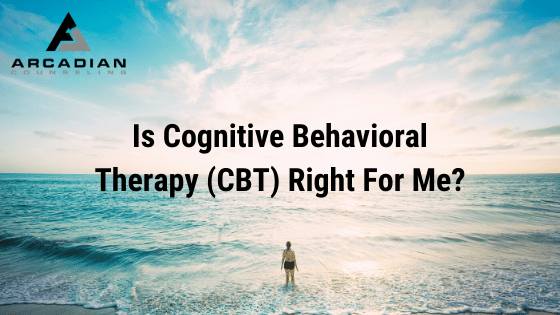With so many acronyms and terms, it can be hard to determine what kind of therapy is right for you. Psychologist. Counselor. Therapist. Psychiatrist. What’s the difference? And what do all those acronyms stand for? CBT? EMDR? ACT? DBT?
Chances are if you’re searching online for help with anxiety or depression, you’ve come across a bunch of letters and acronyms that don’t make sense.
Let’s start by talking about outcome measures and results. After all, isn’t that what matters most?
Studies show the most important factor in determining success in therapy or counseling is not the letters after your therapist’s name (LPC, PsyD, PhD, etc.). It’s not whether or not he or she has a Dr. in front of their name either. And it’s not where they went to school either. Sorry Ivy Leaguers! And guess what else? It isn’t even the type of therapy they practice.
So, what it is? It’s the relationship you have with them. It’s the connection you have with them.
Do you like your therapist? Do you feel heard and understood by your therapist? Or do you feel judged and sometimes shamed by your therapist? Is therapy sometimes fun and relaxing while still challenging? Or is it always cold, distant, painful, and even boring? Do you feel like your therapist really cares about you? Or do you feel like they’re often just watching the clock and so they can take your credit card and move on with their day?
These are the most important factors. Not fancy letters, schools, and degrees.

It’s important to ask yourself some questions first to determine if Cognitive Behavioral Therapy is right for you.
So, the real question is not “Is cognitive behavioral therapy right for me?” The real question is “Is this cognitive behavioral therapist right for me?”
Once you’ve found the right therapist for you, here’s some questions to ask yourself before starting cognitive behavioral therapy:
- Is short-term therapy right for me? For severe or complex problems, short-term therapy like CBT is sometimes not the best route – at least not in the beginning. Sometimes, therapy may need to go on for longer to cover fully the number of problems you have, and the length of time they’ve been around.
- Am I comfortable thinking about my feelings? CBT can involve becoming aware of your anxieties and emotions. Initially, you may find this process uncomfortable or distressing.
- How much time do I want to spend? CBT often involves exercises to practice outside of your sessions. This means you need to commit more of your own time to accomplish your goals and feel better.
- Do I have a clear problem to solve? You may find CBT is less appealing if you feel generally unhappy or unfulfilled, but don’t have specific symptoms or a particular aspect of your life you want to work on.
Expectations of Cognitive Behavioral Therapy
In Cognitive Behavioral Therapy, you first learn to identify painful and unpleasant thoughts about problems you have. The objective is to determine if these thoughts are based in reality. If not, you learn ways to change your thinking patterns so they are more accurate. For example, you may struggle with the thought “I’m a terrible father.” This distressing thought may lead to feelings of guilt, sadness, anger, and ultimately contribute to unhelpful behaviors like self-medicating with alcohol, gambling, or staying late at work to avoid your family.
In CBT, your therapist will help you explore how realistic this thought is. Is it really true you’re a “terrible” father? Where is the evidence you’re a “terrible” father? What does “terrible” even mean? Together, you and your therapist will find ways for you to identify when you have these unrealistic and harmful thoughts. You’ll learn how to challenge them. You’ll also learn how to identify which behaviors are hurting you and then create new, more helpful behaviors.
What kinds of issues can CBT Help?
Cognitive Behavior Therapy is often used to treat phobias, self-esteem and confidence, trauma, depression and anxiety, and ADD and ADHD. CBT is also used in relationship problems and marriage counseling. For instance, if you are struggling with unrealistic expectations of yourself or your partner, CBT can be helpful.
CBT is so well-known and widely used, partly because it has been studied so extensively over the years and also because it emphasizes a short term approach to therapy (which insurance companies really like) with direct, solution-focused strategies and interventions. Because the focus is on measurable and objective changes in thoughts and behaviors, it often means quick results.
CBT isn’t for everyone
Some clients want a deeper exploration of their memories, behaviors, and early relationships with support and guidance from a therapist. Others may want to attend therapy as a way to seek guidance and support through challenging life transitions like divorce, separation, empty nest syndrome, or the loss of a loved one. Further still, others may just want a deeper exploration of their values and purpose and meaning in their life. Given its direct and practical style, CBT can only go so far in some of these areas.
If you need help with depression, anxiety, grief, or a life transition such as divorce or career change, talk to your therapist (or potential therapist) about their approach and see if it resonates with your goals.
Still not sure if CBT is right for you? We’ll help you decide. Contact us today for a free consultation and we’ll get you in the right direction.
James Killian, LPC is the Principal Therapist & Owner of Arcadian Counseling in New Haven, CT where they specialize in helping over-thinkers, high achievers, and perfectionists take control and move From Surviving to Thriving.



